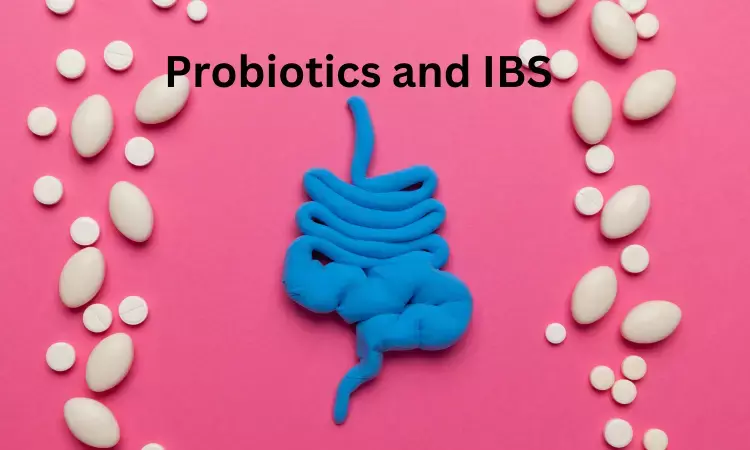- Home
- Medical news & Guidelines
- Anesthesiology
- Cardiology and CTVS
- Critical Care
- Dentistry
- Dermatology
- Diabetes and Endocrinology
- ENT
- Gastroenterology
- Medicine
- Nephrology
- Neurology
- Obstretics-Gynaecology
- Oncology
- Ophthalmology
- Orthopaedics
- Pediatrics-Neonatology
- Psychiatry
- Pulmonology
- Radiology
- Surgery
- Urology
- Laboratory Medicine
- Diet
- Nursing
- Paramedical
- Physiotherapy
- Health news
- Fact Check
- Bone Health Fact Check
- Brain Health Fact Check
- Cancer Related Fact Check
- Child Care Fact Check
- Dental and oral health fact check
- Diabetes and metabolic health fact check
- Diet and Nutrition Fact Check
- Eye and ENT Care Fact Check
- Fitness fact check
- Gut health fact check
- Heart health fact check
- Kidney health fact check
- Medical education fact check
- Men's health fact check
- Respiratory fact check
- Skin and hair care fact check
- Vaccine and Immunization fact check
- Women's health fact check
- AYUSH
- State News
- Andaman and Nicobar Islands
- Andhra Pradesh
- Arunachal Pradesh
- Assam
- Bihar
- Chandigarh
- Chattisgarh
- Dadra and Nagar Haveli
- Daman and Diu
- Delhi
- Goa
- Gujarat
- Haryana
- Himachal Pradesh
- Jammu & Kashmir
- Jharkhand
- Karnataka
- Kerala
- Ladakh
- Lakshadweep
- Madhya Pradesh
- Maharashtra
- Manipur
- Meghalaya
- Mizoram
- Nagaland
- Odisha
- Puducherry
- Punjab
- Rajasthan
- Sikkim
- Tamil Nadu
- Telangana
- Tripura
- Uttar Pradesh
- Uttrakhand
- West Bengal
- Medical Education
- Industry
Role of Probiotics doubtful in Irritable bowel syndrome

Irritable bowel syndrome (IBS) is a most common gastrointestinal condition. Studies regarding the treatment of IBS with probiotics have not yielded consistent results over the past few decades, and the best probiotics is not yet hallmarked.
Researchers in a recent study reveals that some combinations of probiotics or strains may be beneficial in IBS. However, certainty in the evidence for efficacy by GRADE criteria was low to very low. However, if gastroenterologists are to be able to recommend probiotics in patients with confidence, a better evidence base is needed suggested the authors. The findings of the study is published in journal Gastroentrology.
The researchers conducted a search in MEDLINE, EMBASE, and the Cochrane Controlled Trials Register up to March 2023. Randomized controlled trials (RCTs) recruiting adults with IBS, comparing probiotics with placebo were eligible. Dichotomous symptom data were pooled to obtain a relative risk of global symptoms, abdominal pain, or abdominal bloating or distension persisting after therapy, with a 95% confidence interval (CI). Continuous data were pooled using a standardized mean difference with a 95% CI. Adverse events data were also pooled.
The key findings of the study
• Researchers identified 82 eligible trials, containing 10,332 patients. Only 24 RCTs were at low risk of bias across all domains.
• For global symptoms, there was moderate certainty in the evidence for a benefit of Escherichia strains, low certainty for Lactobacillus strains and Lactobacillus plantarum 299V, and very low certainty for combination probiotics, LacClean Gold S, Duolac 7s, and Bacillus strains.
• For abdominal pain, there was low certainty in the evidence for a benefit of Saccharomyces cerevisae I-3856 and Bifidobacterium strains, and very low certainty for combination probiotics, Lactobacillus, Saccharomyces, and Bacillus strains.
• For abdominal bloating or distension there was very low certainty in the evidence for a benefit of combination probiotics and Bacillus strains.
• The relative risk of experiencing any adverse event, in 55 trials, including over 7000 patients, was not significantly higher with probiotics.
Researchers concluded that “Some combinations of probiotics or strains may be beneficial in IBS. However, certainty in the evidence for efficacy by GRADE criteria was low to very low across almost all our analyses.”
Reference: Vivek C. Goodoory, Mais Khasawneh, Christopher J. Black et al; Efficacy of Probiotics in Irritable Bowel Syndrome: Systematic Review and Meta-analysis; August 02, 2023; DOI:https://doi.org/10.1053/j.gastro.2023.07.018
MSc. Neuroscience
Niveditha Subramani a MSc. Neuroscience (Faculty of Medicine) graduate from University of Madras, Chennai. Ambitious in Neuro research having worked in motor diseases and neuron apoptosis is interested in more of new upcoming research and their advancement in field of medicine. She has an engrossed skill towards writing and her roles at Medical dialogue include Sr. Content writer. Her news covers new discoveries and updates in field of medicine. She can be reached at editorial@medicaldialogues.in
Dr Kamal Kant Kohli-MBBS, DTCD- a chest specialist with more than 30 years of practice and a flair for writing clinical articles, Dr Kamal Kant Kohli joined Medical Dialogues as a Chief Editor of Medical News. Besides writing articles, as an editor, he proofreads and verifies all the medical content published on Medical Dialogues including those coming from journals, studies,medical conferences,guidelines etc. Email: drkohli@medicaldialogues.in. Contact no. 011-43720751


